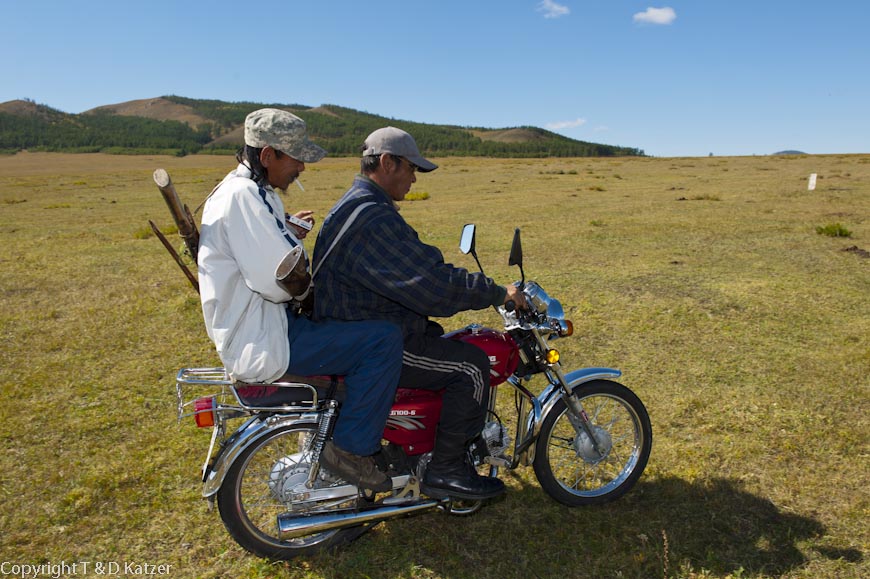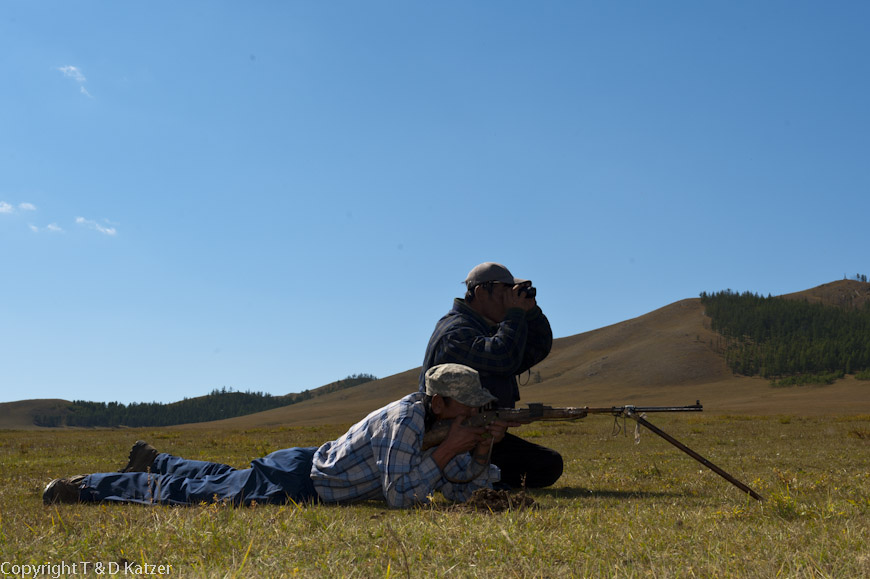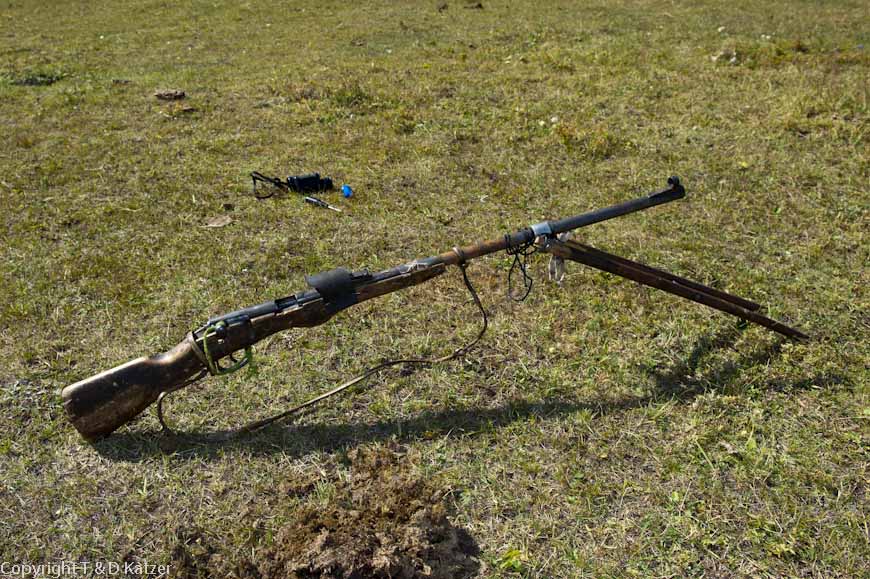
Decide to demolish our warehouse
N 48°55'433'' E 103°39'440''
Day: 412-416
Sunrise:
06:32/06:37
Sunset:
19:33/19:25
Total kilometers:
2468
Soil condition:
Grass
Temperature – Day (maximum):
9 °C/22 °C
Temperature – day (minimum):
8 °C/18 °C
Temperature – Night:
minus 6 °C/3 °C
Latitude:
48°55’433”
Longitude:
103°39’440”
Maximum height:
1380 m above sea level



The coming days are also characterized by unpleasant continuous rain. Certainly not the weather for living in a tent. Tanja and Bilgee visited Ilhauchauu who promised to come by. Because time is relative in Mongolia, we can’t complain that we didn’t get to see him until two days later. After the usual negotiation game, he bought Tenger for 630,000 (382,- €). A top price with which we are more than satisfied. “I’ll bring the money tomorrow,” he promised and was never seen again. We learned that his brother had died and that he had gone to Erdenet to organize the funeral and formalities. We decided to wait a few days for him.
After a week of constant rain, the weather improves again. The sun shines every day and temperatures climb well above 20 °C in the shade during the day. The golden Mongolian fall has arrived. Bilgee uses the waiting time for hunting. He borrows a thirty-year-old small-caliber rifle and sets off every morning with his friend Boldoo to kill marmots. Every evening, the two return to camp without any prey. We regret the failures although we are secretly happy about them. Not out of schadenfreude, of course, but because we wish the now endangered marmots a long life.
The day before yesterday Bilgee missed after several hours of waiting because the barrel of the old shotgun was bent. Yesterday a cartridge simply went up in smoke. There was a misfire today. “Thank God the barrel didn’t die,” I say, because such a cartridge exploding in the barrel has sent many a shooter’s rifle barrel flying around their ears. The failures are unpleasant for Bilgee as he has been a successful hunter all his life and still makes part of his living from hunting.
“They used to call me the mountain man. I had long hair, which was unusual for people. I lived in the mountains for months in summer and winter. I shot 250 to 300 chamois and antelopes a year. There were thousands of them. Only the antlers and testicles of the animals were of interest. We hunters left the rest. Today, meat has become more important because there is hardly any game left. Game meat is in demand. When I made myself comfortable in the grass during the breaks, I heard shots in the surrounding mountains. Other hunters were shooting the same prey as me. As I said, the herds were huge in those days. Today, times have changed. Even among the Tuwa in the taiga, there is hardly any game left. That’s what Ultsan told me,” Bilgee reports on one of the evenings we spend together in the awning.
Thanks to the clear starry sky, the night-time temperatures drop to minus 6 °C again. Tanja is not deterred by this and pulls her sleeping mat outside every evening. She wants to enjoy the wonderful view until the last day.
Today we decide to break camp tomorrow. “We’ve waited long enough for Ilhauchauu,” I say. “That’s right and Bilgee will be happy about Tenger,” says Tanja. “Yes. But it’s still not clear to me how he wants to get the money? If we sell him Tenger, he’ll put himself under stress that he might not want. I know him by now. He’s a man who loves freedom and the wilderness and never stays in the city for long. If he really wants Tenger, he’ll have to find a job,” I say thoughtfully.
We look forward to your comments!

